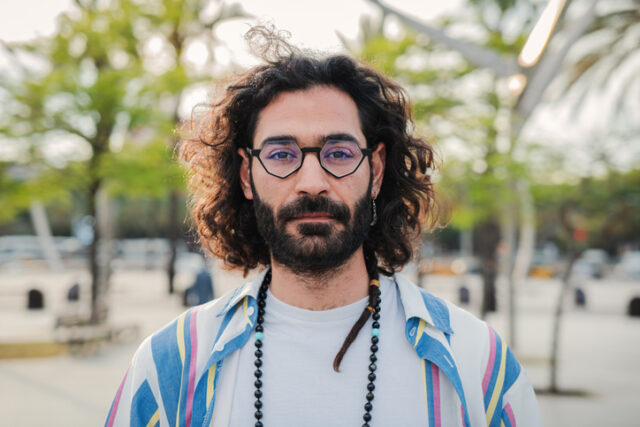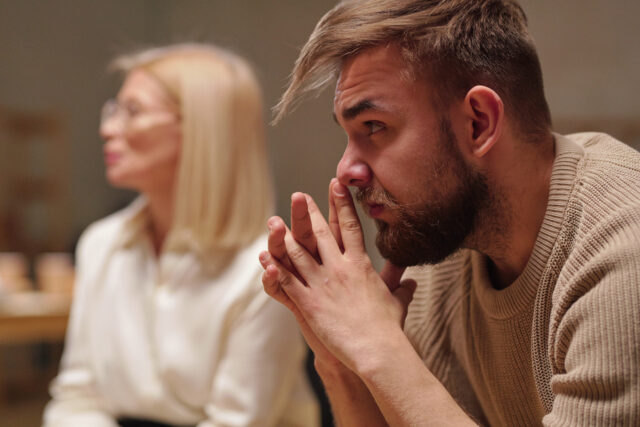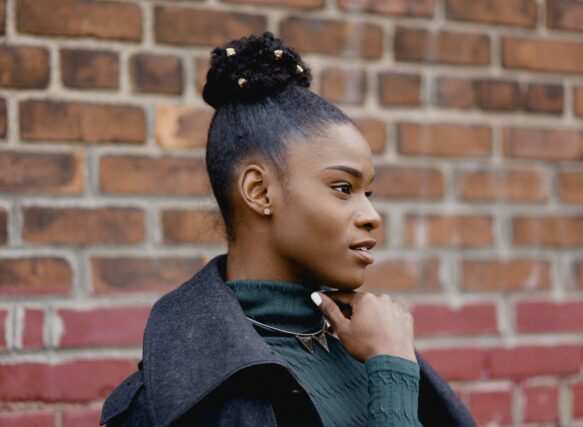Coming out the other side of a toxic relationship can feel like finally being able to breathe after being deprived of oxygen for far too long.

However, getting away from a partner or dynamic that was all wrong for you doesn’t mean the work is done. As much as you’d like to forget it and them and move on, you’ll never be able to unless you reflect on the experience. Here are some questions to ask yourself and answer honestly. It just might help you avoid the same situation in the future.
1. What were the early warning signs I missed?

Think back to the beginning of the relationship. Were there red flags you overlooked or dismissed? Maybe there were moments of discomfort or unease that you pushed aside. Identifying these early warning signs can help you recognise similar patterns in future relationships, which will help you make more informed decisions.
2. How did my boundaries change throughout the relationship?

Toxic relationships often involve a gradual erosion of personal boundaries. Consider how your limits and comfort levels shifted over time. Did you end up accepting behaviour that you once would have considered unacceptable? Understanding how and why your boundaries changed can help you establish and maintain healthier ones in the future.
3. What needs was I trying to fulfil through this relationship?

Often, we enter or stay in relationships because they meet certain emotional needs. Reflect on what you were looking for from this partnership. Was it validation, security, or a sense of belonging? Identifying these needs can help you find healthier ways to deal with them in the future, rather than relying solely on a romantic partner.
4. How did my self-esteem change during the relationship?

Toxic relationships frequently impact our self-worth. Think about how you viewed yourself at the start of the relationship compared to the end. Did you become more self-critical or doubtful of your own judgement? Recognising these changes is the first step in rebuilding your self-esteem.
5. What beliefs about love and relationships did this experience challenge?

Our experiences shape our beliefs about relationships. Consider how this toxic relationship has affected your views on love, trust, and partnership. Have your expectations changed? Understanding these shifts can help you approach future relationships with a more balanced perspective.
6. How did I contribute to the unhealthy dynamics?
 Source: Unsplash
Source: Unsplash While it’s important not to blame yourself for the toxicity, it’s valuable to reflect on your role in the relationship. Were there ways you enabled or perpetuated unhealthy patterns? This isn’t about self-blame, but about identifying areas for personal growth and change.
7. What did I learn about my own values and non-negotiables?

Difficult experiences often clarify what’s truly important to us. What aspects of the relationship conflicted with your core values? What have you realised are absolute must-haves in a healthy partnership? Use these insights to guide your future relationship choices.
8. How did my relationships with friends and family change?

Toxic relationships can often isolate us from our support systems. Reflect on how your connections with loved ones were affected. Did you become more distant or reliant on your partner? Recognising these changes can help you rebuild and strengthen your support network moving forward.
9. What coping mechanisms did I develop, and are they still serving me?
 Source: Unsplash
Source: Unsplash We often develop ways to cope with difficult situations. Some of these might have been helpful at the time but may not be beneficial long-term. Identify the strategies you used to manage the relationship’s challenges and consider which ones you might need to let go of or replace with healthier alternatives.
10. How has my definition of love changed?
 Source: Unsplash
Source: Unsplash Toxic relationships can warp our understanding of love. Think about how your concept of love has evolved. Has it become more realistic or cynical? Reflecting on this can help you develop a healthier, more balanced view of what love should look like in a relationship.
11. What parts of myself did I lose sight of during the relationship?
 Source: Unsplash
Source: Unsplash It’s common to lose touch with aspects of our identity in unhealthy relationships. Consider the hobbies, interests, or personal qualities that you may have neglected or suppressed. Identifying these can be the first step in reclaiming and nurturing these parts of yourself.
12. How did I justify staying in the relationship?
 Source: Unsplash
Source: Unsplash We often create reasons to stay in situations that aren’t good for us. Reflect on the explanations or excuses you made to yourself or other people. Understanding these can help you recognise similar patterns of thinking in the future and make more clear-headed decisions.
13. What have I learned about my own resilience?
 Source: Unsplash
Source: Unsplash Surviving a toxic relationship demonstrates strength. Consider the ways you’ve shown resilience throughout this experience. How have you grown or become stronger? Recognising your own strength can be empowering as you move forward.
14. How has this experience changed what I’m looking for in a partner?
 Source: Unsplash
Source: Unsplash Our past relationships often shape our future expectations. Think about how your criteria for a partner have shifted. What qualities have become more important to you? What do you now recognise as deal-breakers? Use these insights to guide your future choices.
15. What steps can I take to heal and move forward?
 Source: Unsplash
Source: Unsplash Healing is a journey, not a destination. Consider what actions you can take to promote your own healing. This might include going to therapy, practising self-care, or setting new personal goals. Be patient with yourself as you navigate this process.
16. How can I use this experience to create healthier relationships in the future?
 Source: Unsplash
Source: Unsplash Every experience, even painful ones, can offer valuable lessons. Reflect on how you can apply what you’ve learned to foster healthier, more fulfilling relationships in the future. This might involve setting clearer boundaries, communicating more openly, or being more attentive to your own needs and feelings.




